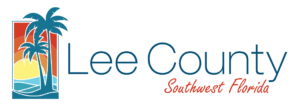
Southeast Advanced Water Reclamation Facility Project (SEAWRF)
FAQs
The Southeast Advanced Water Reclamation Facility project will provide the County with a 6 million gallons per day advanced water reclamation facility that can be expanded to 10 million gallons per day or greater, if needed. The project will support existing and future population growth in the area.
Advanced Water Treatment (AWT) is a standard of treatment that exceeds required treatment levels, meaning cleaner water is being produced. AWT processes remove nutrients in addition to the normal components removed in biological wastewater treatment.
Water reclamation facilities, which typically use biological treatment methods to ensure high quality reclaimed or reuse water, are highly regulated by federal and state laws, which dictate the acceptable limits for nutrients prior to the water leaving the facility. These limits are based on the use of the wastewater after treatment. In the case of the SEAWRF, Lee County has chosen a process that treats to a higher level than is required for public access reuse. Public access reuse, commonly referred to as reclaimed water, is processed wastewater that is required to meet high-level disinfection standards that makes it safe for the public to reuse the water for landscape irrigation and other beneficial uses.
Advanced Wastewater Treatment (AWT) is a key component of the SEAWRF project. This advanced treatment will help to further remove nutrients from the effluent water. Effluent means to flow out and, in this instance, effluent is treated wastewater. Removing nutrients from the effluent water will help protect Lee County water quality. Visit the Project Detail page on our website to view the United States Environmental Protection Agency’s Facts about Nutrient Pollution information.
The SEAWRF will ensure advanced wastewater treatment infrastructure is available to support the growing population in the area. Lee County has expanded the wastewater treatment capacity of other existing treatment facilities and a new facility is now necessary.
The SEAWRF project will be permitted through the Florida Department of Environmental Protection (FDEP). The State of Florida regulatory agencies and Lee County ensure that treatment facilities operate to meet or exceed their permit requirements to protect the environment including water quality. The project will produce high quality reclaimed water that will be of beneficial use to the environment.
A Deep Injection Well (DIW) will be available onsite to dispose of excess effluent water as needed. The DIW disposes of effluent water below the base of the lower most drinking water aquifer in a saltwater zone known as the “Boulder Zone” approximately 3,000 feet below land surface. The DIW consists of many concentric cement encased steel casings placed within hundreds of feet of confining rock and clay that prevent any reclaimed water from entering the drinking water aquifers. Monitoring wells and mechanical integrity testing, as prescribed and enforced by FDEP permits, ensures these wells operate as designed.
The project is currently in the beginning stages of design. A concept plan should be available on the website in early 2023.
The SEAWRF will operate 24/7 by professional licensed operations staff and will be designed to operate in a neighbor-friendly way with engineering controls to treat odorous air prior to release. Odor abatement technology, such as scrubbers and activated carbon filters, will be incorporated into the project. The goal is to operate without our neighbors noticing we are there. Lee County does this successfully at its Three Oaks facility.
As part of the permitting process for the project, coordination will occur with the Florida Fish and Wildlife Conservation Commission (FWC) and the U.S. Fish and Wildlife Service (USFWS) to evaluate the project’s potential effects to wildlife protected by the U.S. Endangered Species Act and those listed as threatened or endangered by the State as Florida (“listed wildlife”). Conservation measures will be utilized to minimize impacts to wildlife to the extent feasible, with mitigation measures provided, as necessary in accordance with USFWS guidelines, to offset unavoidable impacts to listed species habitat. The project will be largely located within previously cleared pasture, thereby minimizing impacts to listed species habitat to the extent possible. Wildlife surveys will be conducted prior to construction to ensure there is no harm to listed wildlife. Any necessary permits for wildlife relocation (i.e., gopher tortoise) will be obtained and implemented prior to the start of construction.
The wetland slough system on the eastern third section of the property, containing approximately 33 acres, will remain as preserve post-development, with exotic vegetation removal implemented to enhance its value for wildlife. Lee County Department of Transportation is expected to incorporate a wildlife/animal crossing for the proposed Alico Road Extension project.
The project is in the initial design phase. Public meetings have been delayed due to the recovery efforts of Hurricane Ian. Check the website for additional information on the upcoming meetings. Construction is anticipated to start in 2025.